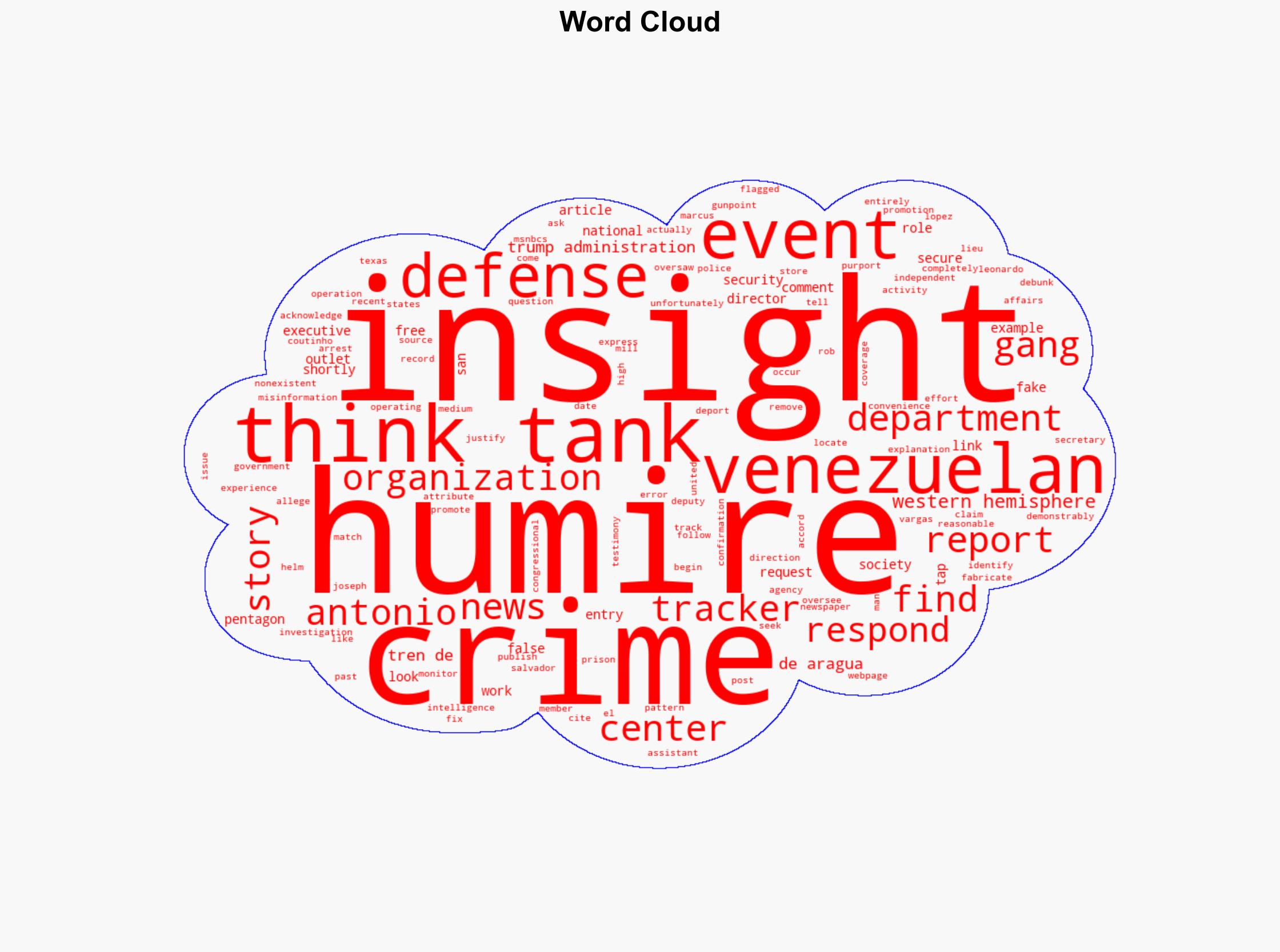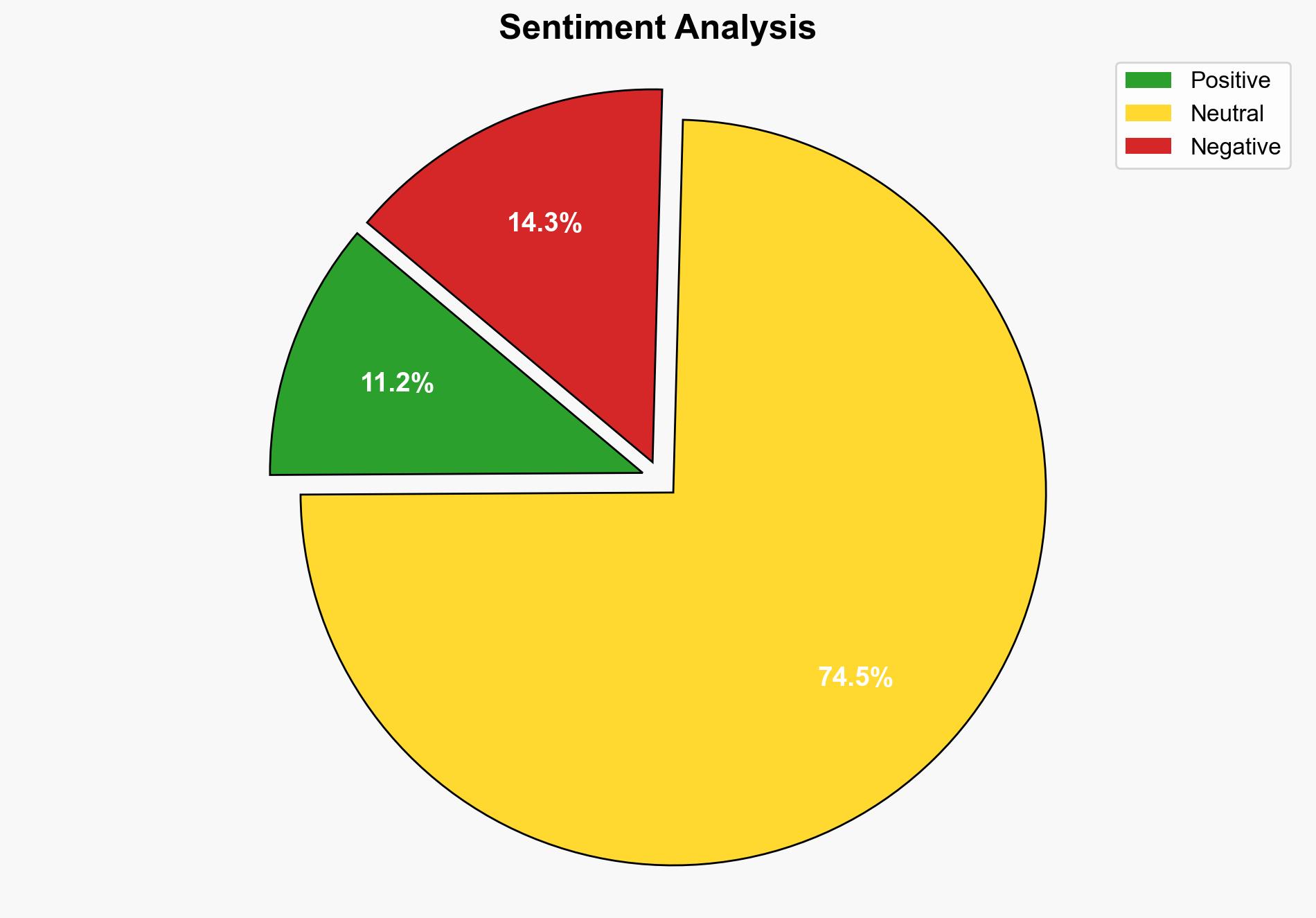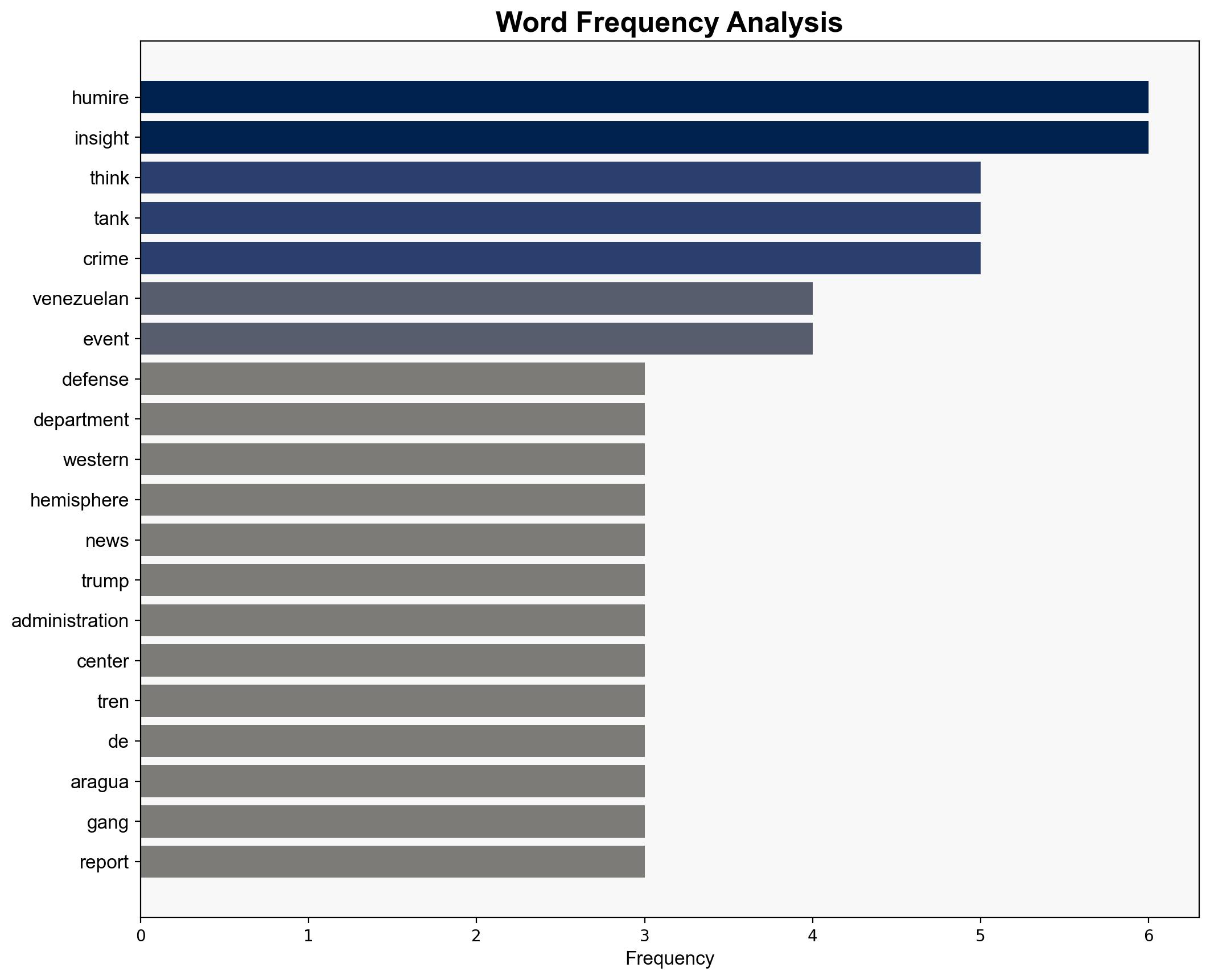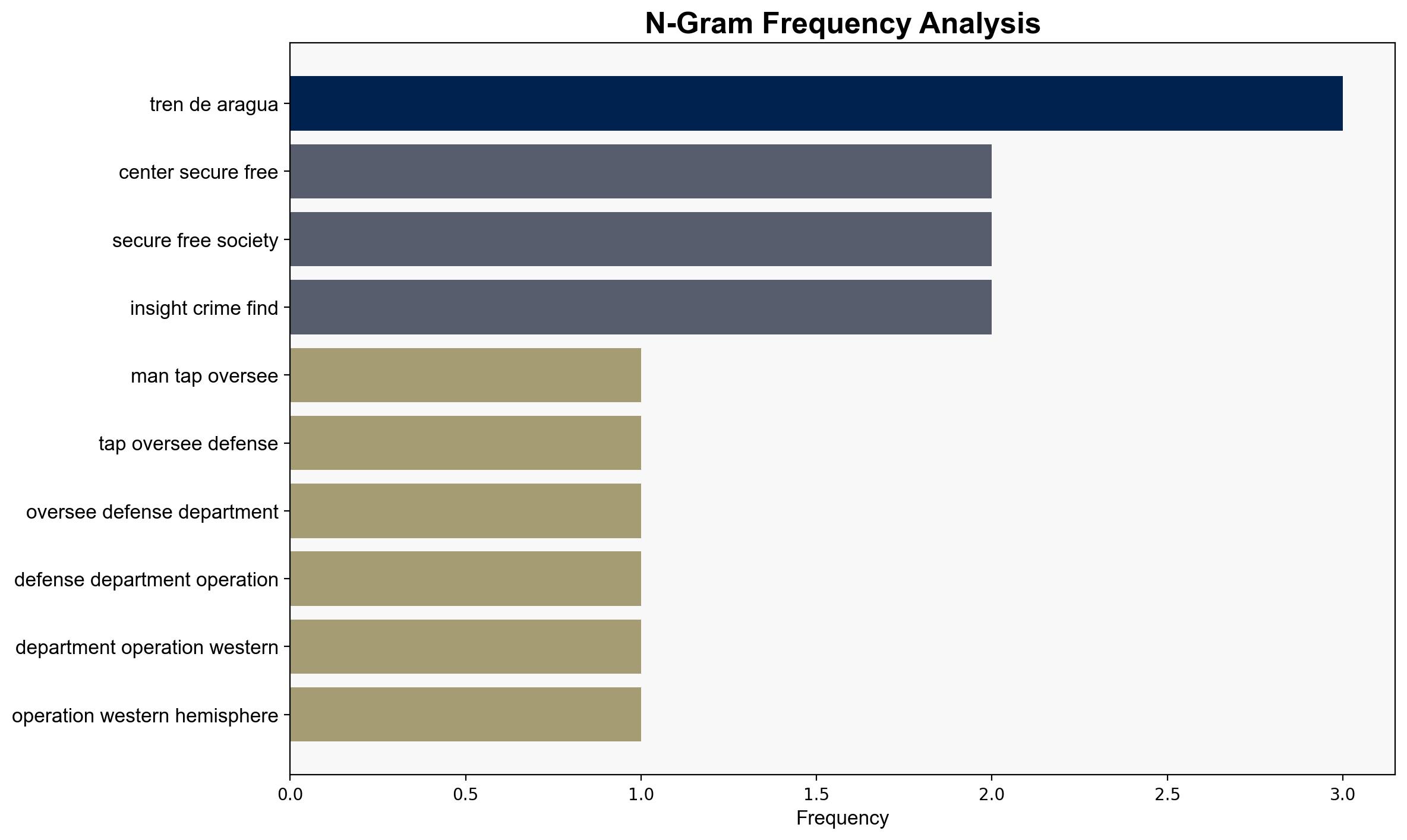Top Defense Department official led a think tank that reportedly spread misinformation – MSNBC
Published on: 2025-08-19
Intelligence Report: Top Defense Department official led a think tank that reportedly spread misinformation – MSNBC
1. BLUF (Bottom Line Up Front)
The most supported hypothesis is that misinformation was deliberately spread by the think tank to influence policy decisions regarding Venezuelan nationals, potentially under the direction or influence of higher political motives. This conclusion is drawn with moderate confidence due to the lack of direct evidence linking the misinformation to strategic intent. Recommended action includes a thorough investigation into the think tank’s operations and its influence on policy-making processes.
2. Competing Hypotheses
1. **Deliberate Misinformation Campaign**: The think tank, under Joseph Humire, intentionally spread misinformation to influence U.S. policy towards Venezuelan nationals, possibly to align with broader political objectives.
2. **Operational Incompetence or Oversight**: The misinformation was a result of poor oversight and operational incompetence within the think tank, with no deliberate intent to mislead or influence policy.
Using the Analysis of Competing Hypotheses (ACH) 2.0, the first hypothesis is more supported due to the pattern of misinformation aligning with political narratives, despite the lack of explicit evidence of intent.
3. Key Assumptions and Red Flags
– **Assumptions**: The analysis assumes that the dissemination of misinformation was not an isolated incident and that the think tank had significant influence on policy decisions.
– **Red Flags**: The think tank’s failure to promptly correct misinformation and the lack of transparency in their operations are significant red flags.
– **Blind Spots**: The potential influence of external political actors on the think tank’s activities is not fully explored.
4. Implications and Strategic Risks
The spread of misinformation poses risks to national security by potentially influencing policy based on false premises. This could lead to strained diplomatic relations with Venezuela and other nations, and undermine trust in U.S. intelligence and policy-making processes. The situation could escalate if further evidence of deliberate misinformation emerges, potentially leading to political fallout or legal consequences for involved parties.
5. Recommendations and Outlook
- Conduct a comprehensive investigation into the think tank’s activities and its influence on defense policy.
- Implement stricter oversight and verification processes for intelligence used in policy-making.
- Scenario Projections:
- Best Case: Investigation reveals no deliberate intent, leading to improved oversight and restored trust.
- Worst Case: Evidence of deliberate misinformation results in political scandal and policy reversals.
- Most Likely: Operational incompetence is identified, leading to reforms in think tank operations.
6. Key Individuals and Entities
– Joseph Humire
– Leonardo Coutinho
– Center for a Secure Free Society
7. Thematic Tags
national security threats, misinformation, policy influence, geopolitical strategy




